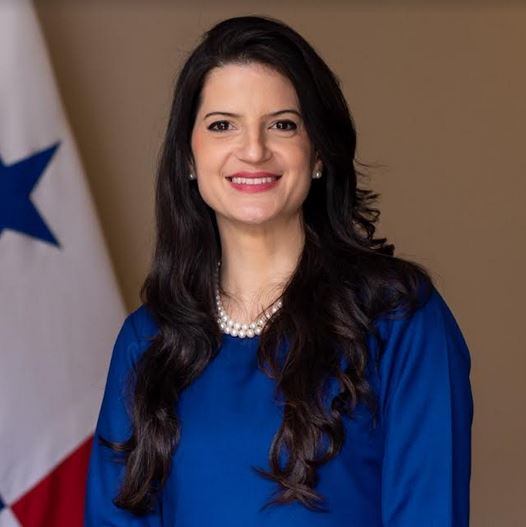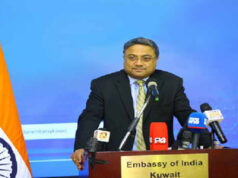Q Smt. Meenakashi Lekhi, India’s Minister of State for External Affairs and Culture, recently paid a visit to Panama. Can you shed some light on the outcome of this visit?
Ans- It was a pleasure to receive Smt. Meenakshi Lekhi in our country, her presence among us was very cordial and fruitful. We discussed the common views of both countries, and the main focus of this meeting was the signing of a cultural agreement that strengthens the previous agreement to seek initiatives that execute activities of cultural exchange and contemplate music programs, dance festivals, theatre performances, and the exchange of art exhibitions. Thanks to this kind of agreement, we will have two important cultural events this year that constantly exchange appreciation between us, and this is extremely positive.
Q Panama has emerged as a blue leader committed to protecting its oceans, resources, and biodiversity, and over the years, both Panama and India have evolved as maritime powers. How can both countries further enhance their cooperation in the maritime sector?
Ans- As is already known, our country has had a very special seat for the last 13 years in the International Maritime Organization as a “category A” country. Panama also plays a very important role in international maritime transportation, being the leader of the world merchant fleet with more
than 8 thousand flagged ships, representing 16% of the maritime merchandise. In relation to this, the India-Panama connection continues to connect its people through ships and ports. India represents an important source of seafarers for the Panamanian Registry. Indian is one of the major seafarers supplying nations to the global maritime industry. Our cooperation in this area is growing not only by improving the good quality of manpower in the sea but also by exchanging information on anti-terrorism practices and actively encouraging gender equality with the promotion of more qualified women in the maritime sector.
You were right when you said Panama is committed as a “blue leader,” and I mention this because other countries can take our example in this particular area. In June 2021, we became one of the first countries in our region to reach the protection of 30% of our territorial waters (within the framework of the 30×30 Initiative of the UN), achieving the status of Blue Leader by creating a reserve of more than 67,000 square kilometers, almost the size of the country. Panama doubled down on this approach at the 2022 UN Ocean Conference in Lisbon, unveiling a commitment to raise the level of protection to 40% of our total waters by 2024. Through this commitment, Panama seeks to protect marine life and the sustainability of marine resources.
Last year, Panama partnered with Costa Rica, Colombia, and Ecuador, members of the Eastern Tropical Pacific Marine Corridor (ETPMC), to expand our collective marine protection, creating the largest protected marine area in the world. By combining our territorial waters and cooperating to protect migratory routes, our countries are ensuring the passage and survival of wonderful but threatened species, such as leatherback turtles, striped marlins, and whale sharks. Also, this year, Panama assumed the presidency of the ETPMC.
Another aspect to remember is the role of the Panama Canal in this blue economy. The Panama Canal has contributed to the reduction of fuel consumption and emissions as it shortens travel distances. Since its inauguration in 1914, the Canal has contributed to the reduction of more than 850 million tons of carbon dioxide (CO2). Additionally, with the recent expansion of the Panama Canal, we are reusing 60% of the water used per lock through our 18 water-saving basins.
Finally, our commitment with India and the world for the conservation of oceans will be made at the
global conference in 2023, “OUR OCEANS,” hosted in Panama, one of the most renowned specialized
forums in the world that seeks to mobilize the international community where governments, non-governmental organizations and civil society commit to measurable actions for the conservation of the oceans and fight climate change.
To read the entire interview, please subscribe to Diplomacy and Beyond Plus.









